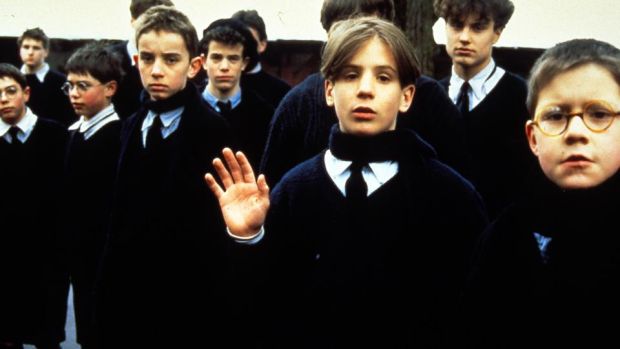
Two school boys, one a son of a privileged French family, the other a Jew with an assumed name, accidentally separate themselves from their schoolmates in the woods during a spirited game of capture the flag. Julien Quentin experiences the rush of fear as he realizes their situation—yet it is only a small taste of the fear which constantly threatens to overwhelm his friend Jean Bonnet. In Nazi occupied France, Jean Bonnet has lost his family, his freedom, and his name.
Hope is extended to him by the Catholic headmaster, Father Jean, who brings Bonnet and two fellow Jews into hiding at his small boarding school. It is here that spoiled Julien befriends him, and in doing so has his eyes opened to the broader world of life and death in Louis Malle’s 1987 award winning feature, Au Revoir, Les Enfants. Yet even as Julien and Jean’s friendship grows, small choices and peccadilloes set up conflict between their insulated world and the war beyond, and between Father Jean and the comfortable system over which he presides.
Malle’s film is based on his schooling years during the war, and the film is cloaked in the despairing tones of those haunted memories. Browns and grays and muted light permeate the film’s palette. Warmth, however, is found in the character’s faces and actions, perhaps never more so than in two complementary scenes of faith. In one, Jean prays in Hebrew long after all the other students have gone to sleep. A single candle lights his earnest features in golden light. In the other, Father Jean preaches a homily to the assembled parents basked in the warm glow of the school’s chapel. Both are pleas for God’s mercy and justice—and serve as calls to action for Julien, his classmates, and their parents.
Au Revoir, Les Enfants reminds us that, just as in real life, those calls are not always heeded. Goodbye, children! Goodbye to the safe world that comforts you. But remember, goodness and grace hold a promise. They will see you soon. À bientôt! — Edward Allie
Arts & Faith Lists:
2010 Top 100 — #91